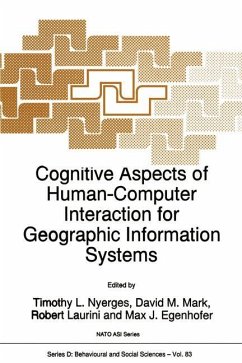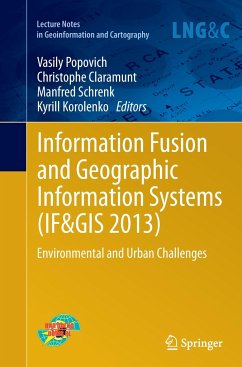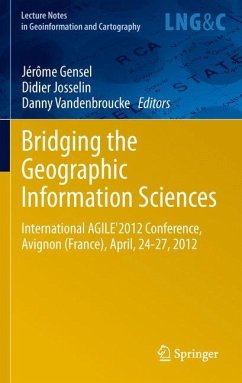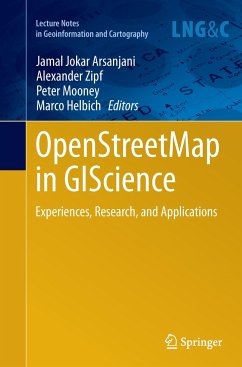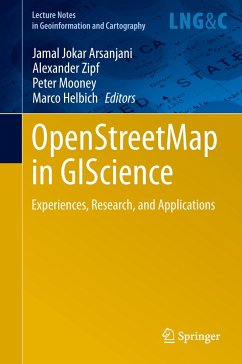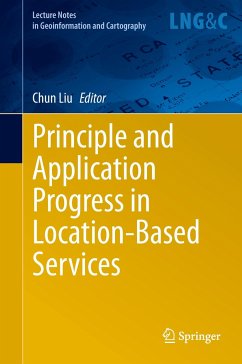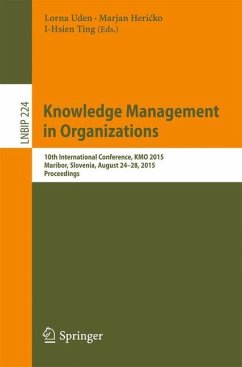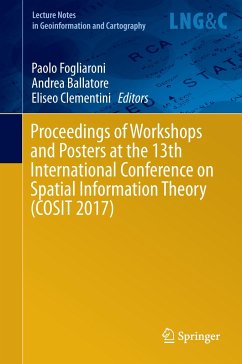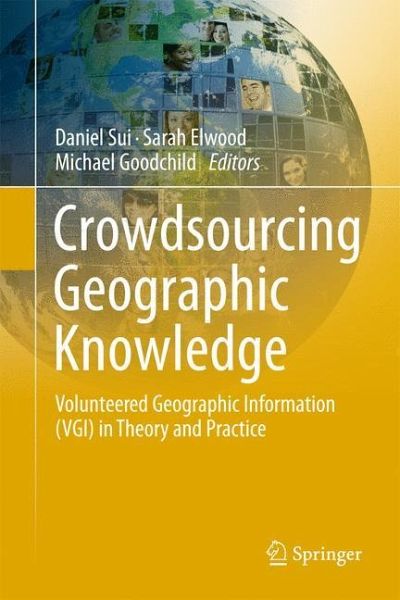
Crowdsourcing Geographic Knowledge
Volunteered Geographic Information (VGI) in Theory and Practice
Herausgegeben: Sui, Daniel; Elwood, Sarah; Goodchild, Michael
Versandkostenfrei!
Versandfertig in 6-10 Tagen
113,99 €
inkl. MwSt.

PAYBACK Punkte
57 °P sammeln!
The phenomenon of volunteered geographic information is part of a profound transformation in how geographic data, information, and knowledge are produced and circulated. By situating volunteered geographic information (VGI) in the context of big-data deluge and the data-intensive inquiry, the 20 chapters in this book explore both the theories and applications of crowdsourcing for geographic knowledge production with three sections focusing on 1). VGI, Public Participation, and Citizen Science; 2). Geographic Knowledge Production and Place Inference; and 3). Emerging Applications and New Challe...
The phenomenon of volunteered geographic information is part of a profound transformation in how geographic data, information, and knowledge are produced and circulated. By situating volunteered geographic information (VGI) in the context of big-data deluge and the data-intensive inquiry, the 20 chapters in this book explore both the theories and applications of crowdsourcing for geographic knowledge production with three sections focusing on 1). VGI, Public Participation, and Citizen Science; 2). Geographic Knowledge Production and Place Inference; and 3). Emerging Applications and New Challenges. This book argues that future progress in VGI research depends in large part on building strong linkages with diverse geographic scholarship. Contributors of this volume situate VGI research in geography's core concerns with space and place, and offer several ways of addressing persistent challenges of quality assurance in VGI. This book positions VGI as part of a shift toward hybrid epistemologies, and potentially a fourth paradigm of data-intensive inquiry across the sciences. It also considers the implications of VGI and the exaflood for further time-space compression and new forms, degrees of digital inequality, the renewed importance of geography, and the role of crowdsourcing for geographic knowledge production.



